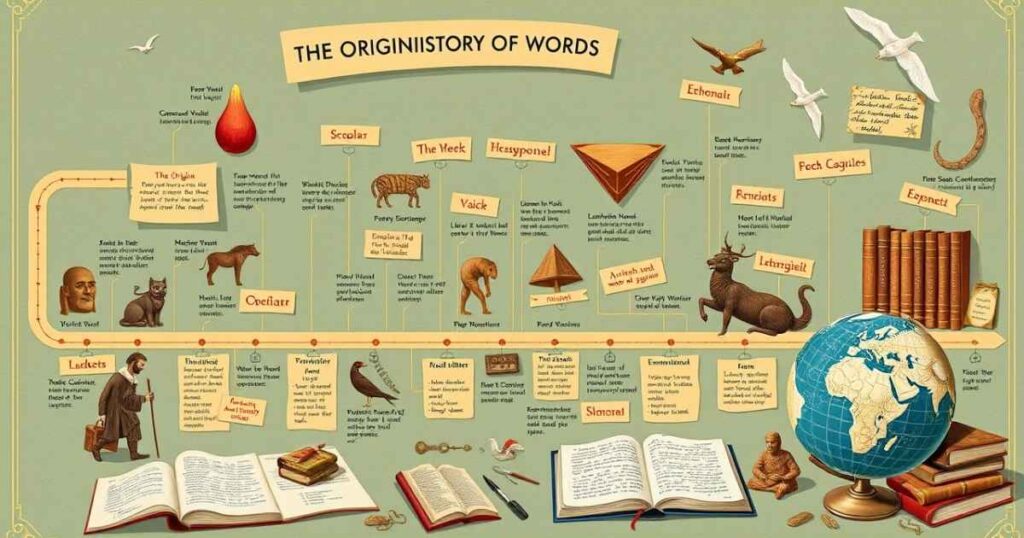Business vs Busyness is more than just a play on words. It’s a real problem many people face today. Are you truly growing a business, or are you stuck in endless busyness? The two may sound alike, but they lead to very different outcomes.
In the battle of business vs busyness, clarity is key. Busyness means rushing through tasks without clear goals. It feels productive but often leads nowhere. Business is about purpose, results, and value. Many confuse the two. This is the heart of the busyness vs business problem. Ask yourself: is your business busyness helping you grow, or just making you tired? Is busyness a word that describes your day? If so, it’s time to rethink. Business vs Busyness isn’t just a topic. it’s a wake-up call. Let’s dig into what makes the difference and how to shift from chaos to clarity. Because doing more isn’t the same as doing what matters.
Definitions and Examples
Business vs Busyness shows the clear difference between working with purpose and simply staying busy. Business means planned action for results. Busyness is constant activity without progress. Knowing both helps you work smarter, not harder. Below are 20 simple examples to help you understand how these words are used in everyday life.
Examples:
- My brother’s in business.
- She’s caught up in busyness.
- They started a frozen food business.
- He always complains about busyness.
- I set up in business last year.
- Her busyness makes her forget meals.
- We’re running a business together.
- His busyness keeps him awake.
- That small firm is growing fast.
- Her busyness leads to burnout.
- He’s a management consultant.
- I warned her about busyness.
- They deal with overseas customers.
- Their busyness affected quality.
- I’m focused on product development.
- Too much busyness kills creativity.
- She tracks her KPIs daily.
- His busyness hurt decision-making.
- This firm values strategic goals.
- Busyness stopped her from reaching deadlines.
Grammatical points

When discussing Business vs Busyness, it’s important to recognize the subtle grammatical differences between these two words. Though they may sound similar, their meanings are distinct. “Business” is a noun referring to commercial activities or organizations, while “busyness” is a state or condition of being busy or occupied with tasks. Understanding this difference helps to use these words correctly in context.
The word “business” is often used to describe the enterprise or trade that people engage in. It can also refer to one’s profession or occupation. For example, you might say, “She is in the business of consulting” or “They run a small business in real estate.” “Business” can also be used more broadly to describe commercial transactions or trade, such as, “The buying and selling of goods and services.”
On the other hand, “busyness” refers to the quality or state of being busy, often implying a sense of overwhelming activity. It is not used to describe a particular type of work but instead the mental or physical load someone might experience. For example, “Her busyness kept her from focusing on the important tasks.”
The grammatical structure of these two words differs slightly as well. “Business” is a singular noun, but it can also be plural in some contexts, like when referring to types of businesses. Meanwhile, “busyness” is an uncountable noun, which means it doesn’t have a plural form.
In summary, understanding Business vs Busyness helps in proper usage. “Business” is focused on organized work, while “busyness” describes the overwhelming feeling of being busy without true productivity.
More about the words
Understanding the difference between business vs busyness is crucial for anyone aiming to succeed in today’s fast-paced world. While both terms involve activity, the key distinction lies in the outcome of that activity. Business refers to purposeful work aimed at creating value, generating revenue, or achieving strategic goals. On the other hand, busyness often involves running around, tackling tasks without clear goals, and simply filling the day with activities that may not be productive.
A business is goal-driven. It focuses on creating something of value, whether it’s a product, a service, or a solution that serves a market need. Successful business owners and entrepreneurs focus on growth, development, and meeting key performance indicators (KPIs). For example, a frozen food business might focus on improving product quality and expanding its customer base. The work here is structured and planned, aimed at long-term results.
In contrast, busyness lacks direction. It may look like productivity at first glance, but in reality, it often leads to burnout and inefficiency. You might find yourself answering emails, checking social media, or attending meetings that do not directly contribute to your long-term goals. Many people confuse business vs busyness, not realizing that busyness can hinder success if it isn’t aligned with a clear purpose.
Consider an entrepreneur who constantly feels overwhelmed with meetings and to-do lists. Despite all the action, their business vs busyness balance is off. They may spend too much time on low-priority tasks and not enough time focused on high-value activities like strategic planning or product development. This is where time management and task prioritization become essential.
Examples of business vs busyness can be found in any industry. For instance, a real estate agent focused on expanding their client base through strategic marketing is operating within a business framework. Meanwhile, someone who spends most of their time answering emails but doesn’t focus on closing deals is caught in busyness.
To achieve success, it’s important to manage both efficiently. Set clear objectives, avoid distractions, and always remember: business vs busyness isn’t just a topic it’s a framework for effective time management and goal achievement.
Related Guide:
Top 60 Most Used Double O Words In English [2025]
Pronunciation
Pronunciation plays a crucial role in communication. It refers to the way words are spoken, and getting it right ensures clarity. Mispronouncing words can lead to misunderstandings or make conversations harder to follow. This is especially important in professional settings where clear communication is key.
For example, the way we say certain business-related terms can impact how we’re perceived. Saying a word too fast or slurring can make you sound less confident. On the other hand, pronouncing words clearly gives an impression of professionalism and competence.
In any language, pronunciation varies. Different regions or accents may cause certain words to be spoken differently. While this diversity can be charming, it’s essential to know the correct pronunciation, particularly when speaking to a wide audience.
For anyone learning a new language or improving their speaking skills, practicing pronunciation regularly is important. This ensures your message is not only heard but also understood the way it was intended.
Etymology

The word “business” has its roots in Old English, derived from the word bisig, meaning “careful” or “diligent.” It eventually evolved to refer to “occupation” or “trade” as people began associating it with work that required focus and attention. The term gained popularity around the 14th century and has since become synonymous with commerce, trade, and professional activity.
On the other hand, “busyness” originates from the same root, bisig, which was used to describe the state of being busy or engaged in activity. The transition from bisig to “busyness” occurred over time, and it came to represent the quality of being preoccupied with tasks, often without regard to their importance or productivity.
While both words are derived from the same root, their meanings have diverged. “Business” has evolved to refer to a formal activity involving work, trade, or commerce, while “busyness” became associated with a more casual, perhaps even excessive, engagement in activities, often leading to a sense of being overwhelmed or unfocused.
The development of these terms highlights how language evolves to reflect societal shifts in understanding. As work and daily life became more complex, new terms emerged to describe different states of productivity and focus.
Today, these terms are used frequently in discussions of time management, productivity and organizational behavior, showcasing their relevance in modern life.
Sample context

In a professional setting, the difference between focused work and just staying busy can be significant. For example, an employee at a marketing firm may be tasked with developing a new campaign. If they prioritize researching trends and analyzing data, they’re engaging in productive work that aligns with the company’s objectives. However, if they spend hours attending meetings or organizing files with no clear impact on the project, they’re simply filling time without achieving much.
Similarly, a manager in a small firm might spend the day answering emails or dealing with administrative tasks. While these actions are necessary, they don’t directly contribute to the business’s strategic growth. This is a common scenario where people may feel overwhelmed with tasks but don’t see tangible results because they’re focused on low-priority activities.
In contrast, a consultant working on a project for a client might dedicate their time to creating detailed reports or advising on key decisions. These actions directly influence the client’s success, making the work outcome-oriented and valuable.
Even in personal life, these distinctions can be applied. For example, setting aside time to focus on long-term goals like career development or health can yield better results than getting distracted by short-term tasks that don’t move you forward.
In each context, understanding the difference between productive effort and mere activity is essential for achieving meaningful success.
FAQ’s
What is the real difference between the two?
Business vs Busyness shows the gap between meaningful work and just being busy without real results or direction.
Why do people confuse them?
People confuse Business vs Busyness because both involve activity, but only business creates value and clear progress toward goals.
How can I avoid being stuck?
To escape Business vs Busyness, set priorities, use time-blocking, and focus on outcomes instead of simply filling your day with tasks.
Is being busy always a bad thing?
In Business vs Busyness, busyness feels productive but can hide stress, distraction, and burnout if it lacks purpose or planning.
Can this affect my success?
Yes, Business vs Busyness can impact your success by wasting time on low-value tasks instead of growing your business with smart strategies.
Conclusion
In the end, Business vs Busyness is all about purpose. One builds success. The other drains your energy. Many people think they are working hard, but they are just trapped in busyness. They confuse motion with progress. The truth is, busyness is not the same as running a real business. Ask yourself are you just staying busy, or are you building something that matters?
Understanding business vs busyness can change how you work. Focus on outcomes, not just activity. Plan smarter, not harder. Know that busyness a word people use when they feel overwhelmed. But smart planning can fix that. Don’t let busyness vs business steal your focus. Stay clear, stay sharp. Use tools that help. Set real goals. Cut out distractions. Remember, your business busyness should lead somewhere. Choose results over routine. Let Business vs Busyness guide your next move and work with purpose, not just pressure.

Zion Blaze is a dedicated administrator with 5 years of experience in managing operations, optimizing workflows, and ensuring efficiency. Skilled in leadership, problem-solving, and team coordination.

